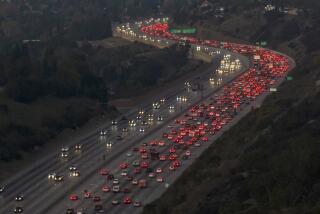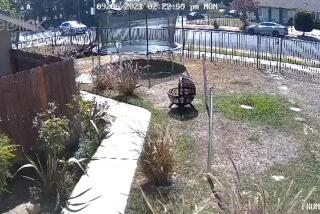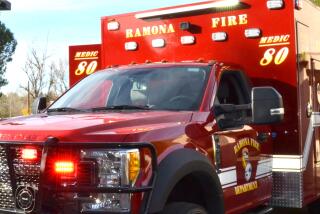If Hit by Uninsured, Check Your Policy
- Share via
It never fails.
Inevitably, the careless driver that slams into the rear of your car doesn’t have insurance, and usually, he doesn’t have a job or a savings account either.
That’s what happened to me a few years ago. I was waiting, minding my own business, at a stoplight, when, with no warning and not even the screech of brakes, a late-model Lincoln Continental slammed into my small, sporty Mazda.
After recovering from the shock, I did what everybody is supposed to do after a car accident. I exchanged name and address information with the other driver. He gave me his driver’s license number. But he couldn’t give me the name and number of his insurance policy because he didn’t have one.
It was--and is--against the law to drive without insurance. At the time, only after a car accident did the DMV seek to verify insurance coverage.
But that wasn’t going to be a problem. The other driver--an unemployed actor, I discovered later--swore up and down that he would pay for the damage to the vehicle.
He didn’t pay for the dent in my car.
Worse yet, I couldn’t even find him to tell him that after the accident I had a sore back, consulted a doctor and needed physical therapy.
If the other driver had been insured, I’m sure his insurance company would have paid for the damage to my vehicle, my doctor bills and also given me a settlement payment for my pain and suffering, because the accident was clearly and entirely his fault.
No Other Company
There was no other insurance company, but that didn’t stop me. Fortunately, as a lawyer, I knew a little bit about uninsured-motorists coverage.
By state law, every automobile insurance policy must contain a provision insuring against bodily injury or wrongful death attributed to a negligent uninsured driver. You can waive uninsured-motorists coverage but only by an agreement in writing. (Although the mandatory provision does not cover damage to the vehicle, most insurance companies now offer optional uninsured-motorist coverage for property damage too.)
So, if the other driver is not insured or the other driver’s insurance carrier denies coverage, you and your passengers can make a claim against your own insurance company, which in these circumstances, will act as if it was the other driver’s carrier. And you can collect for your physical injury along with the accompanying pain and suffering, and any loss of wages arising from the injury.
If you had $500 in medical bills, you might ask for $2,000 as settlement and wind up getting perhaps $1,200. Although settlements vary, depending on the circumstances, two to four times the amount of your out-of-pocket expenses is a reasonable rule of thumb.
Contact your agent or claims representative, and try to work out an acceptable settlement. But if you and the insurance company cannot agree on a fair settlement, the law requires that uninsured-motorists disputes be submitted to arbitration.
The scope of the coverage is limited to the same type of loss that would be recoverable if the other driver had been insured. For instance, in one 1970 case, a driver was injured after he and another driver had an “altercation,” and the other driver got out of his car and hit him over the head with a bottle. Even though the driver with the bottle didn’t have automobile insurance, the court said uninsured-motorists coverage would not pay for the injuries from the bottle.
‘Physical Contact’
The coverage is also limited to injuries resulting from “physical contact” to you or your car from another car. That is meant to reduce the possibility that a motorist who runs into a telephone pole through his own negligence will fraudulently claim that he had to swerve to avoid an unidentified, uninsured car.
In one case, a driver contended that he was blinded by the high-beam lights from another car, but the court ruled that there was no “physical contact” and the coverage did not apply. There must be “a meeting of three-dimensional masses of material having weight, density and bulk, and with dimensions perceptible to the normal naked eye,” the court said.
The State Bar publishes a free legal-information pamphlet for the glove compartment, “What Should I Do If I Have an Auto Accident.” It is available in English, Spanish and Chinese. For a copy, send a self-addressed, stamped, business-size envelope, noting which language is requested, to Auto Accident Pamphlet, State Bar, 555 Franklin St., San Francisco, Calif. 94102.






